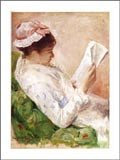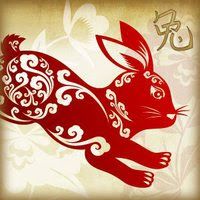 Field Guide to the End of the World: Poems by Jeannine Hall Gailey
Field Guide to the End of the World: Poems by Jeannine Hall GaileyMy rating: 5 of 5 stars
In the world of Jeannine Hall Gailey's field guide, the end came with neither a bang nor a whimper. Instead, it seems to have come as the sun flickered and flamed - a wayward sun, with "chilled sunshine leaving its dying rays on your face as we waved good-bye, good luck, barefoot on the wrecked beach." Our guide tells us to "keep a steady eye on the whirling dervish of the sun" as she alternates between chronicles of the last survivors in a ruined world, and her lifelong struggle with her own genome, gone horribly wrong, turning her into a mutation ("We don't spout doll's heads from our wrists," she says), with her life collapsing like colonies of bees.
Don't consider me
another mutant gone wrong, my betrayals in the distant backstory, my tears
now flow a green ooze as I try to heal the land, cesium in the sunflowers
goat genes welded into innocent corn.
Near Fukushima, "former beauticians with Geiger counters test the dangers of homegrown carrots." That disaster, at least, could be studied and quantified, but could someone - or something - have seen the apocalyptic tipping point and changed history? "I never saw the Ferris wheel start its fatal roll," she mourns, and she "left out the open petri dishes of polio and plague next to the pasta." Was the tipping point so small, so homely?
Interspersed amongst poems of frantic, last-minute grabs at normalcy ("is now the time for cake?") are postcards from the road. At "Appalachian Chalet," she is "next to a granite-strewn stream that gurgles amid sunbeams as if the whole world never went wrong." Martha Stewart collects drones, burbles about the romance of hurricane lamps, and says that "razor wire goes beautifully with your holly thicket." From an Anthropologie catalog, she finds "strappy leather sandals perfect for sand-charred paths... a woven bamboo suitcase as the future dissipates." From HGTV, she sees "a lone shoe on a staircase, the last vestige of someone's question: Take or leave? What, in the end, is essential baggage?"
Our guide is observant, bitterly funny, and dying. She muses about Dorothy in Oz (will she become "an eco-warrior in ruby heels" or create "a new phone app: Angry Flying Monkeys"?) and skewers the soothsayers and dream interpreters who would, inevitably, crop up and see Signs. "Beware foxes flying out your window; fractals indicate creativity...If the angel is spinning, it's time to pay attention." In this world, the "rough beast" (prophesied by Yeats in "Byzantium" as the center does not hold) does not slouch. This time, it is "the limping birth of the rough end of a dark age," one she has lived longer than most.
Once, she "looked away just as the plane plummeted." One thinks of Breughel's Icarus, in Auden's poem, as the ploughman never looks up to see "something amazing, a boy falling from the sky." "About suffering, they were never wrong, the Old Masters," observes Auden. Neither is our guide, who, seeing a baptism, says "you'll never be quite free no matter how you pray. You'll never claw the scales from your eyes."
Or will we? Perhaps there will be survivors, people to "pass the crayons back and forth, telling each other once more the story of creation, stories of genomes, while the kind rabbits scramble over hills out of the sun."
These are wonderful, chewy, imaginative poems that will haunt you and make you observe. Thank you, Serena Agusto-Cox of Poetic Book Tours, for including me in this round. Follow the link for more reviews.
View all my reviews


No comments:
Post a Comment